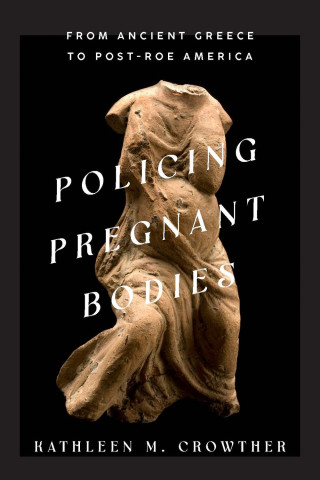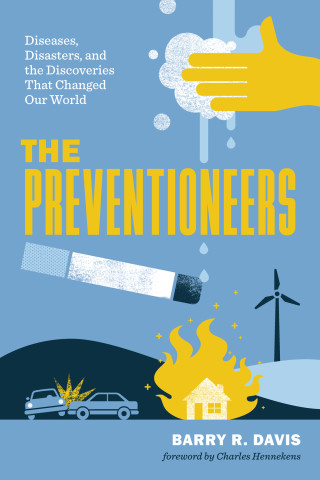
Reviews
Timely and important.This book is a wake-up call for those who care about and for women and children.
Historian Kathleen Crowther sees a connection between Ancient Greek philosophers studying embryos and modern day abortion restrictions....In her new book, Policing Pregnant Bodies...Crowther examines ancient metaphors that are still being used, describes the process through which early physicians came to understand fetal development, and explores the pernicious notion that a pregnant woman is the primary threat to the health of her fetus.
[Crowther] effectively shows how the same misogynistic ideas crop up repeatedly throughout history, pitting pregnant people against fetuses in a dangerous zero-sum game....In Policing Pregnant Bodies, Crowther combines three decades of experience as a medical historian with a rare ability to communicate clearly and engagingly with a general audience.
Crowther, a very knowledgeable historian of reproduction, effectively draws together ancient and modern religious and philosophical thought about the importance of the developing fetus and the minimal role (as told from the mostly male perspective) of the pregnant female body.This book is well researched and well referenced.
Kathleen M. Crowther's new book, 'Policing Pregnant Bodies: From Ancient Greece to Post-Roe America' breaks down historical perceptions of pregnancy and their relation to modern politics.
Crowther convincingly argues that from its beginnings in ancient Greece, western medicine has pitted the developing fetus against the pregnant woman to the detriment of both....Soundly argued.
Crowther does an excellent job of demonstrating the long history behind some of the rightwing tropes currently popular in...efforts to end abortion and other elements of women's healthcare.
This book is a masterpiece. Though the medical and legal surveillance of pregnant women's bodies is relatively recent, Crowther demonstrates how wombs have historically been considered dangerous places and how the policing of pregnant bodies today is an insidious extension of that train of thought. The explicit links that she draws between the present and the past are the brilliant foundation of this perceptive historical analysis.
There's a long history of showing the fetus as independent, with the body of the person carrying it as passive, or even hostile. This lively and readable introduction shows how historical metaphors of pregnancy can help us understand modern preoccupations with saving babies rather than supporting women.
A timely, important intervention that reveals the long histories of many of our modern ideas about reproduction. In our time of reproductive health crisis in the United States, this book illuminates the ways in which ideas about women as threats to fetuses or about inherent conflict between fetuses and women are neither natural nor inevitable.
While fetal monitors and ultrasounds seem to define pregnancy today, Crowther reveals that our ideas about the relationship between fetus and pregnant person are profoundly shaped by very old ideas about procreation. Incisive and elegant, this critical commentary is urgent reading in our current moment.
From Aristotle to 21st-century statehouses, Crowther excavates the embryologic origins of symbolics of the fetus and the pregnant body that now dominate medical, political, and popular discourse around abortion and pregnancy in the U.S. Essential reading for anyone interested in how a range of policies harm the well-being of babies and birthing people.
In this compelling, accessible history of embryology, pregnancy, and its interruption, Crowther reveals the development of ideas that have led to pregnant persons' rights to bodily autonomy being diminished, denied, even condemned. With nuance, Crowther puts past and present into dialogue to expose a history of insidious ideas that continue to shape our present.
Book Details
Introduction
Chapter 1. The Tell-Tale Heart
Chapter 2. The Fetus in the Bottle
Chapter 3. The Dangerous Womb
Chapter 4. The Secrets of Women
Chapter 5. Abortion and the Fetus
Conclusion
Acknowledgments
Furthe
Introduction
Chapter 1. The Tell-Tale Heart
Chapter 2. The Fetus in the Bottle
Chapter 3. The Dangerous Womb
Chapter 4. The Secrets of Women
Chapter 5. Abortion and the Fetus
Conclusion
Acknowledgments
Further Reading
Notes
Bibliography
Index






